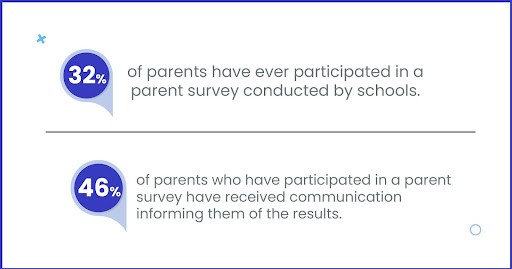7 Strategies For Improving Parent-Teacher Communication in Special Education
22nd September 2023

In the world of special education, effective communication between teachers and parents is crucial. Parents are a vital part of the school community and proper communication with them can make a paramount difference in your day-to-day life. Whether you opt for technology, traditional paper methods, or a combination of both, there are better ways to streamline this communication process.
7 Ways To Ensure Efficient Communication With Parents

Source: schoolvoice.com
Here are 7 ways that parents and teachers can use to build relationships that will support children and benefit them:
- Initiating Initial Contact
Once teachers have identified the students in their classroom for the academic year, they should take the initiative to establish communication with the parents. This initial contact can be as straightforward as sending an introductory email or making a phone call.
Regardless of the method chosen, this early interaction serves as an opportunity for both parents and teachers to introduce themselves and establish an open channel of communication. Knowing they can connect with their child's teacher right from the beginning reassures parents that they will actively participate in their child's educational journey.
- Email Communication
Email is a swift and efficient way to exchange detailed information with parents. While it may not be suitable for daily communication, it proves invaluable when more in-depth discussions are needed. You can also leverage social media to simplify the process, enabling everyone to remain well-informed.
Establish one or more social media accounts for parents to follow, akin to traditional classroom newsletters. This fosters efficient and timely communication, keeping both parents and teachers abreast of events. Encouraging student involvement further strengthens this bridge between home and school life.
- Phone Apps for Teachers
In today's digital age, there is a wide array of apps available for various purposes, including facilitating communication between parents and teachers. These specialized applications offer a convenient and enhanced way for parents and educators to engage in regular interaction. Teachers can utilize these apps to send out reminders and messages to the entire class, individual parents, or specific individuals as needed.
By leveraging such apps, like the messaging feature in Classcraft, Remind, Bloomz, Class Dojo, etc. it becomes easier for both parents and teachers to foster a sense of community within the classroom. This means that they can stay connected and informed about school-related matters using tools that are already a part of their daily routines.
Hey, do you follow us on Social Media? We regularly share upgraded educational content, tips, feedback and more. Check us out by clicking the profiles here - Facebook / Twitter / LinkedIn / Pinterest / Instagram / YouTube
- Traditional Paper Communication
While technology is an excellent resource, it may not always be accessible or preferred by parents. In such cases, alternative paper-based methods can be equally effective. Annotate worksheets with notes indicating how a student completed the tasks (with assistance or independently). This helps parents understand their child's performance at school.
For important messages that must reach parents promptly, write them on wristbands worn by the students. This ensures the message is seen, even if the backpack is overlooked.
- Daily Communication Sheets
These sheets are a time-efficient alternative to traditional communication notebooks. Parents can quickly review their child's activities for the day. Adding checklists can further expedite communication.
Depending on students' abilities, you can use sheets with visual symbols or encourage students to reflect on their day by writing a few key points. Customize these daily sheets to suit your classroom's unique requirements.
- Engage in Parent-Teacher Conferences
The value of parent-teacher conferences should not be underestimated. These meetings offer an excellent platform for parents and teachers to have face-to-face discussions about a child's performance and progress in school.
It is also an ideal occasion for parents to share any relevant information about events at home that might influence their child's behavior and learning in the classroom.
- Utilize Classroom Newsletters
Traditional classroom newsletters remain an effective means of keeping parents informed about school-related matters. Teachers can easily create these newsletters using templates, which can then be distributed via email or printed and sent home with each student.
These newsletters can include details about upcoming classroom events, scheduled meetings, and the current curriculum. Consider incorporating a dedicated "parent" section where parents can exchange feedback and insights with each other.
Simplifying Home-to-School Communication
Enhancing communication between special education teachers and parents is essential for the student's well-being and progress. If you're still using traditional communication notebooks, consider adopting these alternative methods to make the process more efficient and user-friendly. Try pursuing special education needs courses for parents and teachers to know more about how to communicate effectively with the people involved. Remember, effective communication shouldn't be a burden, but a tool for success.
We believe education should be accessible for everyone. That’s why we don’t charge for our blogs. Find the right course that will help you in your career with us, contact us at - +6621056101. You can mail us at act@asiancollegeofteachers.com

